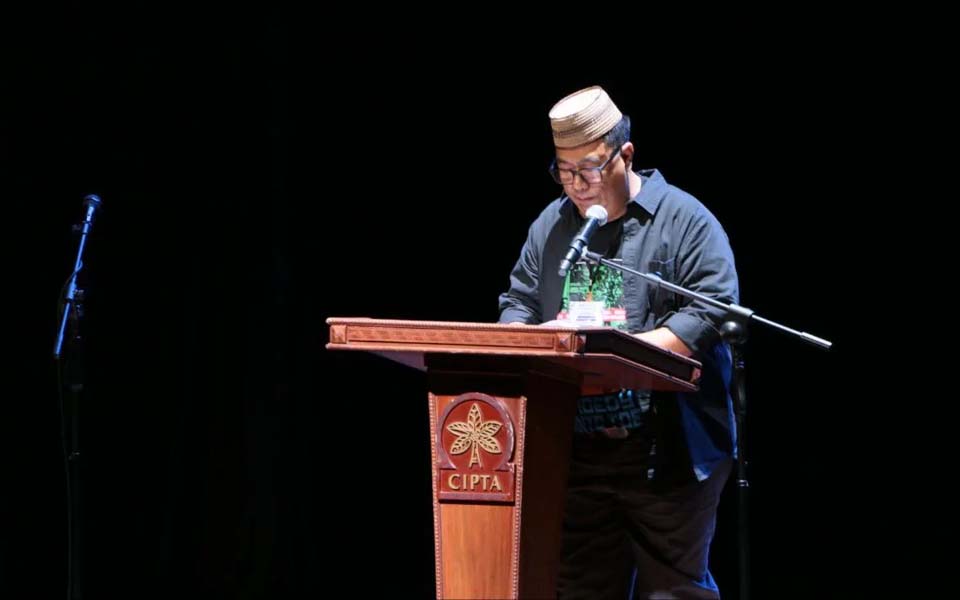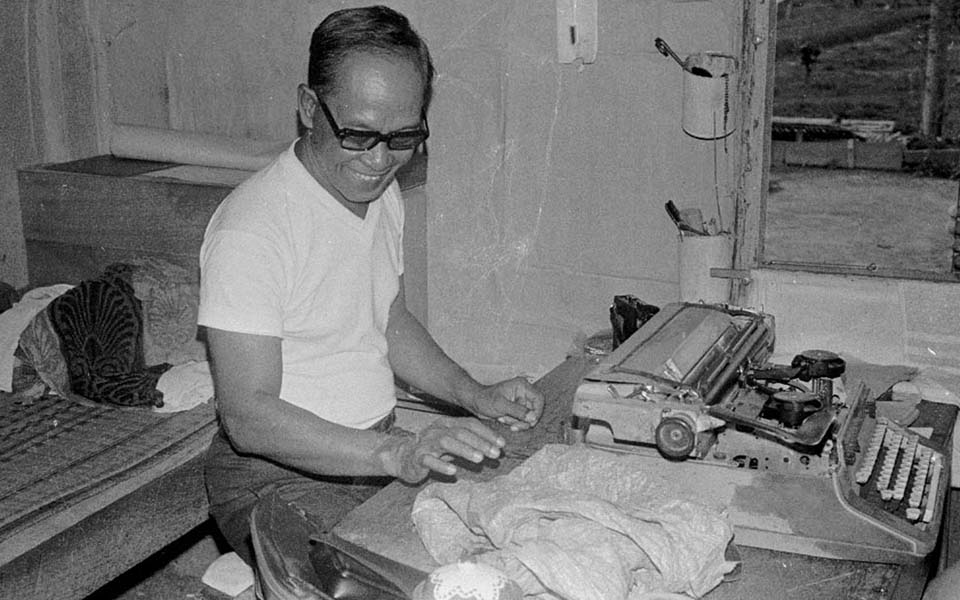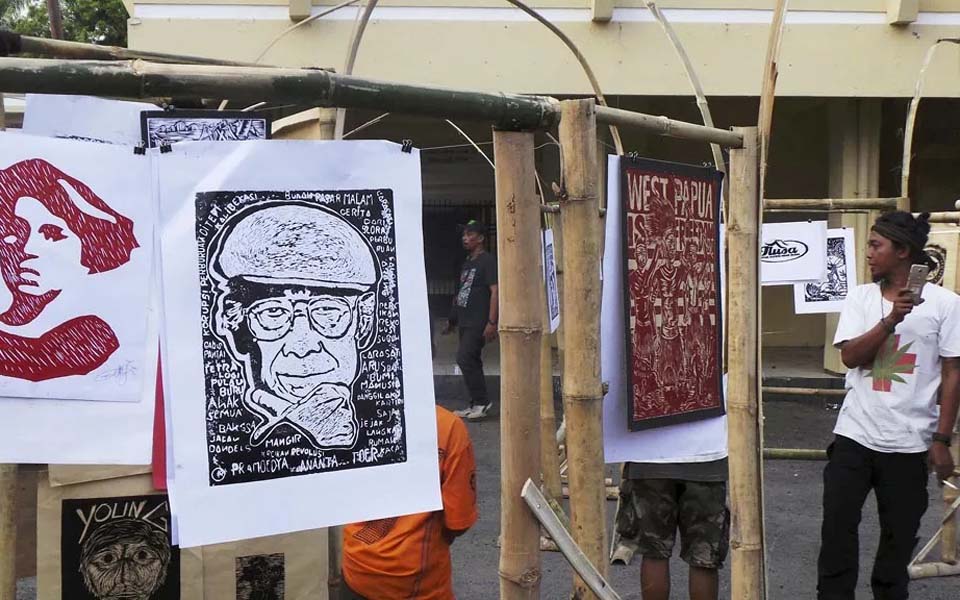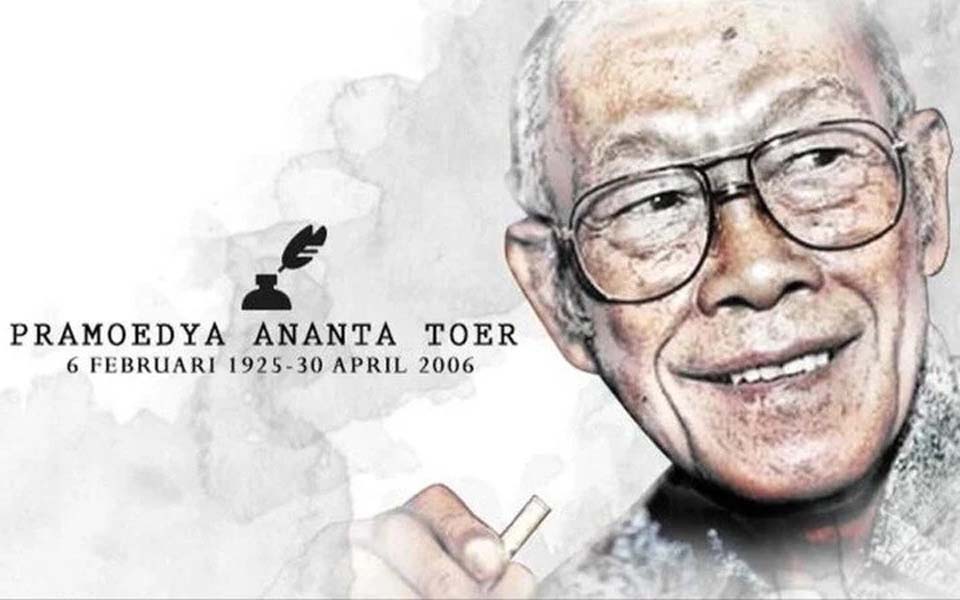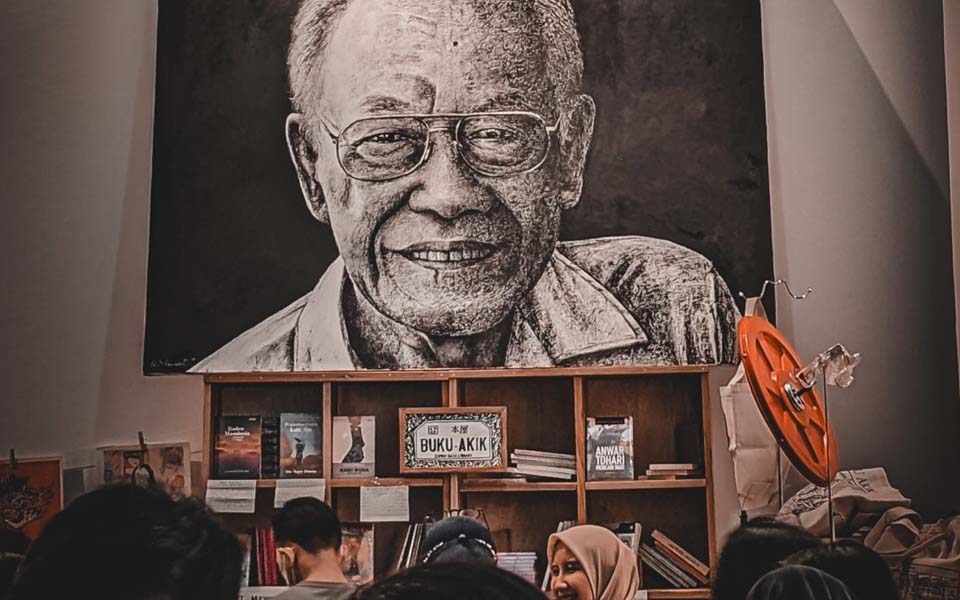Jakarta – The Buru Quartet, four novels by Indonesia’s foremost author Pramoedya Ananta Toer that tell the story of the formation of Indonesia, are still in hot demand as demonstrated by 10 thousand sales of the quartet in just two weeks since it was reprinted in July this year.
“We plan to do another reprint that will be ready in book stores in August”, said Astuti A. Toer, the daughter of the late Pramoedya when speaking with Antara news in Jakarta on Sunday.
The quartet reprinted by publisher Lentera Dipantara includes This Earth of Mankind (Bumi Manusia), Child of All Nations (Anak Semua Bangsa), Footsteps (Jejak Langkah) and House of Glass (Rumah Kaca). The four related novels have been published in almost all languages in major countries around the world.
This Earth of Mankind was first published in 1980 followed by Child of All Nations which was printed in 1981, Footsteps in 1985 and House of Glass in 1988. All four however were been banned from sale and distribution by the Attorney General’s Office under the New Order regime of former President Suharto because they were deemed to contain “leftist” ideas.
This Earth of Mankind and Child of All Nations was banned in 1981 and Footsteps in 1985, followed by House of Glass which was banned in 1988, all only a few months after being published.
Pramoedya Ananta Toer was born in the Central Java town of Blora on February 6 1925, and died on April 30, 2006 in Jakarta. Pram (as he is widely known) wrote the quartet when he was interned on Buru Island, Maluku. Throughout his life, Pram complained of feeling that he had been treated unjustly because he was arrested, jailed and interned on Buru Island without ever being tried.
“After the New Order regime ended, Pramoedya’s books and works were republished and distributed in Indonesia, and every time they’re republished they sell out completely”, said Astuti.
Throughout his carrier as a man of literature, Pram produced scores of works. Aside from the Buru Quartet, other well known works include the Girl from the Coast (Gadis Pantai), Not a Night Market (Bukan Pasar Malam), The Fugitive (Perburuan), Stories from Blora (Cerita dari Blora) and Just Call Me Kartini (Panggil Aku Kartini Saja).
The stories in the Buru Quartet, which are often referred to as the Child of All Nations Quartet, covers the history of Indonesian during the period of national awakening through a fictitious character named Minke, who is based on the real figure Tirto Adhi Soerjo. (Antara)
[Translated by James Balowski for the Indoleft News Service. The original title of the report was 2 Pekan, Tetralogi Buru Pram Edisi Baru Terjual 10 Ribu.]







